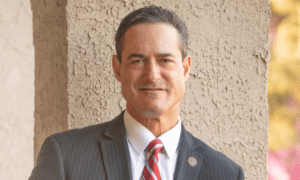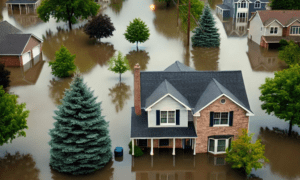COVID-19 tests, vaccines for uninsured in limbo as federal funding dwindles – OCRegister
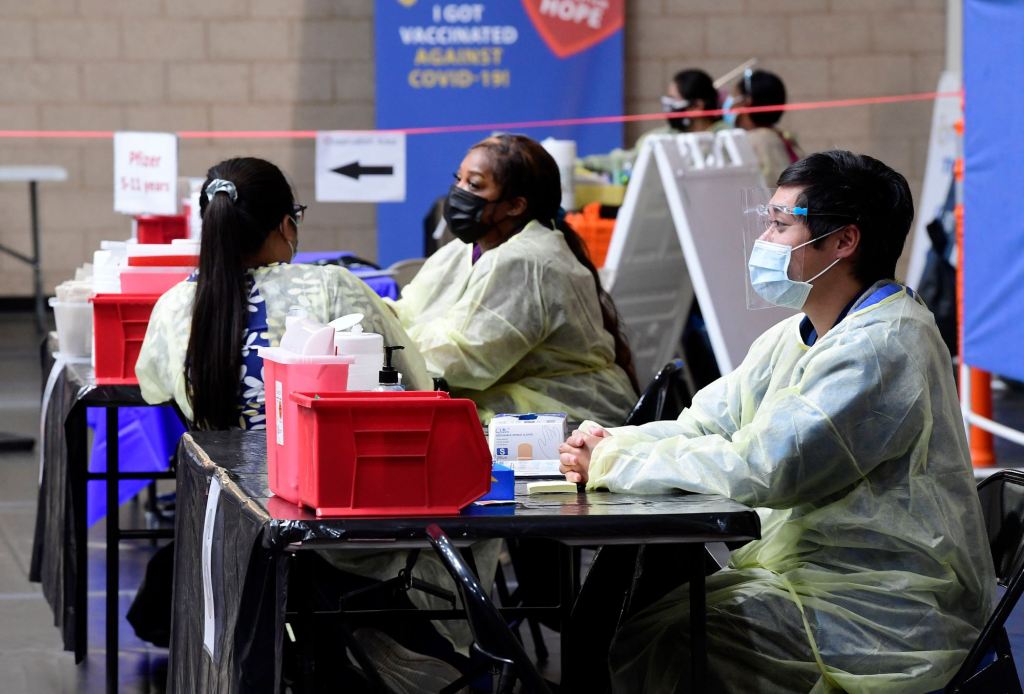
For people without health insurance, getting a COVID-19 test or vaccine could become more of a challenge as federal dollars to cover those services run out.
Southern California health providers say they’ll try to avoid turning patients away, even if Congress dithers over approving new funding, but they urged anyone considering a vaccine or booster to get that shot right away.
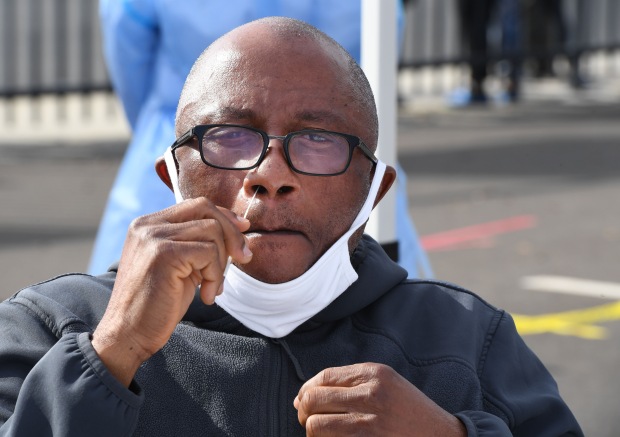

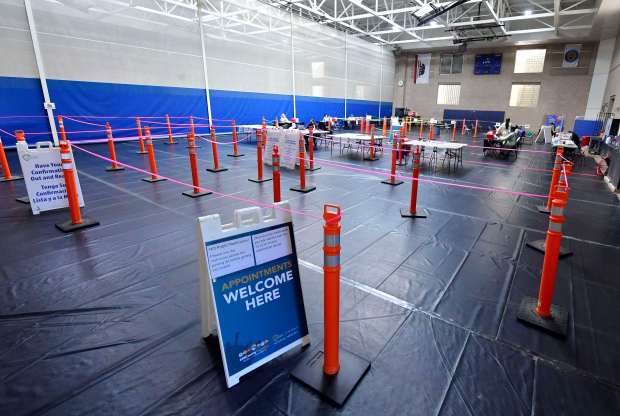
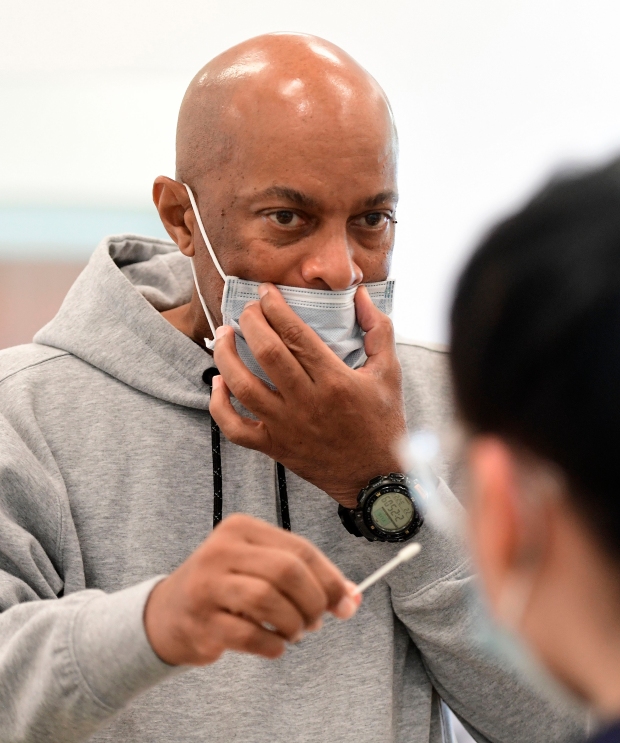


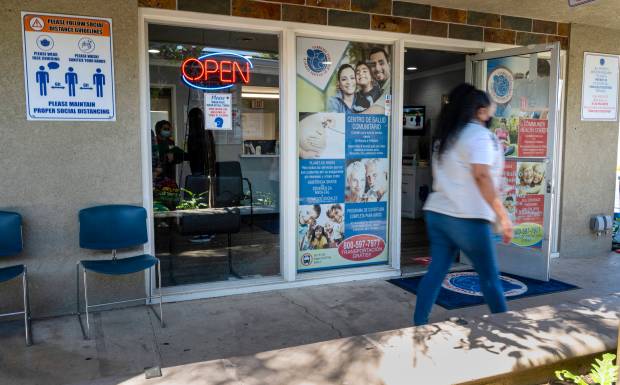


And those who have health insurance should expect to get asked for that information when they receive coronavirus-related services, something that didn’t always happen earlier urgent days of the pandemic.
The federal Health Resources and Services Administration has been reimbursing hospitals, clinics and other providers for giving patients vaccines, tests and treatments for COVID-19. Last week, the White House announced previously authorized funding was almost gone, and the federal agency was set to stop accepting reimbursement claims on Tuesday, March 22, for tests and treatments, and on April 5 for vaccinations.
“We are very concerned that, first of all, it happened so quickly without any kind of warning,” said Isabel Becerra, CEO of Orange County Community Health Centers.
Most clinics won’t stop providing COVID-19 services, she said, but because some have used federal funding to beef up staffing, “fewer patients will be able to be seen on any given day.”
Los Angeles County Department of Public Health Director Barbara Ferrer was more blunt in a media briefing last week.
After months spent building capacity for testing and vaccinations, the lack of funding “wrecks our network immediately,” she said, adding that the services are expensive and providers need adequate reimbursement to continue them.
Already some providers are putting out the word that they’ll have to start billing in some cases.
A testing site in Newport Beach sent out an email this week noting that the end of government funding means they’ll be charging uninsured patients $100 for a rapid antigen test and $250 for a rapid PCR test
At Families Together, a Tustin clinic that already has 28,000 unreimbursed patient visits on its books, CEO Alex Rossel said a lab that processes its COVID-19 tests just told him if there’s no insurance coverage, it may begin billing about $75 per test, either to the clinic or the patient.
Rossel estimated up to 30% of the people who come to Families Together have no insurance. Clinic executives are debating whether to start limiting services to just their established patients and sending anyone else to wherever they regularly get care, he said.
But the uninsured are still expected to have options. County health departments have state money, grants and other sources of funding that should allow them to keep working with partner organizations to offer testing and vaccinations, Orange County Health Officer Dr. Regina Chinsio-Kwong said.
Free rapid at-home tests can still be ordered from the federal government at www.covidtests.gov, and public health agencies list state-funded testing sites that don’t depend on federal dollars and will be operating “at least in the near term,” Riverside County Deputy Health Officer Dr. Shunling Tsang said.
At least until April 5, vaccinations are widely available at pharmacies and community health centers, she said, adding, “my advice to anyone who is unvaccinated is to please go get vaccinated now.”
Mario Ortega, CEO of Abrazar in Westminster, said he was relieved to learn that mobile clinics his nonprofit has been taking to neighborhoods with low incomes and low vaccination rates, in partnership with the Orange County health agency, will be able to continue for at least the next several months.
Those types of clinics reaching people throughout the region where they live and work have been an important pandemic-fighting strategy because even more than a year after vaccines rolled out, there are still people just now getting them, providers said; there’s also talk about recommending a second booster for adults.
Ortega said his mobile clinics are still averaging 300 shots a week. Becerra said every time her network (including 26 entities with 80 locations) puts on a vaccination event “we still get a good amount of people coming out of the woodwork saying, ‘Oh, I didn’t know it was free,’ or, ‘I didn’t know I could do it on a Saturday,’ or, ‘It took my relative getting COVID and die before I knew this was serious.’”
Some of Southern California’s members of Congress say they understand the need for COVID-19 services in their communities and are fighting to secure more money to pay for them.
“COVID-19 is still with us and we need to be prepared to confront additional outbreaks so that schools and businesses can stay open,” Rep. Pete Aguilar, D-San Bernardino, said in a statement.
“I’m confident that we will come to an agreement in the near future that will not cause any disruptions or shortages,” he said of the negotiating between parties.
Rep. Mike Levin, D-San Juan Capistrano, said in a statement that he supports the White House’s request (which includes $22.5 billion in emergency funding) and will “continue to work with my colleagues to pass this funding as soon as possible.”
But some experts worry that ramping down services while funding lags could put communities in a vulnerable position if cases spike or a new concerning variant emerges.
“This is a step in the wrong direction,” UC Irvine epidemiologist Andrew Noymer said, adding that one factor in getting a handle on the pandemic has been the ability for people to get tested or vaccinated wherever it’s convenient.
A reduction in testing, especially, could mean health officials are unaware of a looming threat, Noymer said.
“As the 45th president said, the less testing we do, the less COVID we find.”


